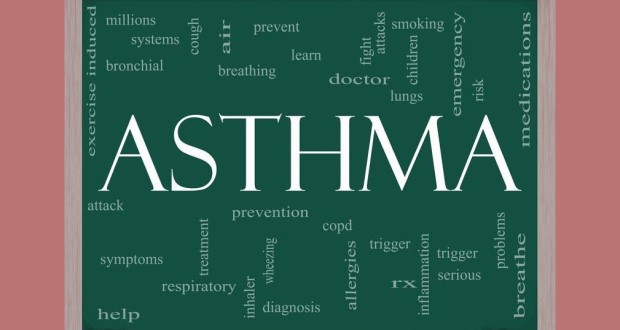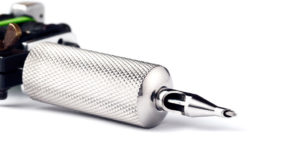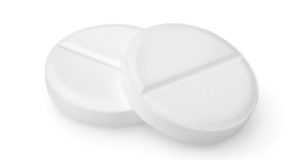To a casual observer, there would seem to be little in common between gastroesophageal reflux disease (GERD) and asthma. After all, GERD afflicts your stomach and esophagus, whereas asthma is a notorious cardiovascular condition – how could the two conditions possibly be related? As it turns out, GERD and asthma often go hand-in-hand, as many patients with asthma often suffer from the distressing effects of GERD. While it is impossible to fully cure both GERD and asthma, patients suffering from both of these ailments can manage their symptoms through common-sense lifestyle changes.
Through decades of research, medical science has unearthed a surprisingly strong link between GERD and asthma – in fact, approximately 75 percent of asthma patients also develop GERD. If you are not familiar with the symptoms of GERD, rest assured that it is not a minor condition. GERD weakens the barrier between the stomach and esophagus, a muscular ring known as the lower esophageal sphincter. With the esophageal sphincter barrier removed, the contents of the stomach are free to flow into the esophagus, resulting in the burning sensation known as commonly known as heartburn.
Given that so many asthma patients have GERD, it would seem that the cause-and-effect aspect of the two conditions’ relationship has been conclusively established. However, the exact details of the GERD-asthma connection remain murky. Research has failed to provide a definitive answer as to whether asthma causes GERD, or if GERD begets asthma.
Despite this nagging question, doctors have documented significant correlations between the intensity of GERD and asthma. For example, reducing the effects of GERD often carries the added bonus of making the patient’s asthma less potent. Conversely, the development of asthma often aggravates a person’s preexisting GERD symptoms.
While it cannot be said that GERD is always responsible for the onset of asthma, research strongly suggests that GERD causes this respiratory disorder under the following circumstances:
- A patient develops asthma in adulthood, after enjoying a childhood free from respiratory problems
- A patient notices that his or her asthma symptoms become more pronounced after eating a meal, engaging in exercising or lying down.
- Standard treatments show little impact in curbing a patient’s asthma.
Understanding the GERD-Asthma Connection
Though evidence clearly shows that GERD and Asthma often trigger one another’s symptoms, doctors still lack a concrete explanation as to why such a link exists. One theory holds that GERD-induced stomach acid damages the patient’s airways and lungs, rendering both areas especially vulnerable to external irritants like air pollution, cigarette smoke and cold air. Some researchers argue that stomach acid, while flowing up through the esophagus, stimulates nerves connected to the lungs. Erroneously believing the respiratory system to be in danger, the body tightens and narrows the surrounding airways. Consequentially, the patient begins to experience a sudden onslaught of asthma-related symptoms.
The problem may also stem from an unexpected source – asthma medications. This explanation is not without merit; Theophylline, a popular asthma treatment that can be administered in a variety of forms, can potentially exacerbate GERD symptoms. The same side-effect might also be caused by bronchodilators, medications that enter the body through inhalers. Bronchodilators may cause the esophageal sphincter to loosen its grip on the bottom of the esophagus, allowing painful acid to escape from the stomach. While each of these theories are plausible, additional research must be performed in order to fully understand the GERD-asthma relationship.
Living With Asthma and GERD
It can be very discouraging to be simultaneously afflicted by both asthma and GERD, as many patients are faced with lifelong symptoms related to these two conditions. Despite the often-chronic nature of GERD and asthma, patients can minimize the effects of these ailments by making a series of lifestyle changes.
GERD symptoms can be mitigated through the following tactics:
- Before lying down, raise the head of your bed by roughly six inches. This will give your bed a diagonal slant, allowing gravity to keep the stomach’s acid where it belongs. We must stress that the bed itself must be raised; a stack of pillows will not only fail to contain your stomach acid, it will actually worsen your heartburn by placing a greater strain on your abdomen.
- Be conscientious about when you eat. Ideally, you should finish your meals roughly three to four hours before lying down. Bedtime snacks should be eliminated entirely; though they might satisfy your appetite, they often aggravate an already weakened digestive system, leading to painful bouts of heartburn.
- You’ve probably heard that your daily intake of food should be divided into three large meals. For GERD patients, this advice is actually counterproductive, as large meals place a heavy burden on both the esophagus and stomach. Instead, GERD sufferers are far better off eating smaller meals five to six times per day.
- If you are carrying extra weight, try and burn it off through diet and exercise. In addition to a wide range of other problems, being overweight taxes the interior of your abdomen. In turn, this unnatural abdominal pressure can force stomach acid into the esophagus.
- A number of foods and beverages can cause the esophageal sphincter to relax, opening up the floodgates to waves of stomach acid. The list of culprits includes fatty foods, chocolate, peppermint, coffee, tea, colas and alcoholic drinks. Even healthy foods, such as tomatoes and citrus fruits, should be avoided by GERD patients. Though beneficial for most people, these foods can create additional stomach acid, causing heartburn to occur more frequently.
- It’s no secret that smoking is bad for your health. If you are struggling with a lingering smoking habit, here’s yet another reason to quit – smoking interferes with the esophageal sphincter’s ability to block the flow of acid out of the stomach.
- Loose belts and clothing can provide you with a good amount of heartburn relief.
As with GERD, the frequency and severity of asthma symptoms can be reduce through some relatively minor adjustments.
- This shouldn’t come as a surprise, but smoking cigarettes only serves to worsen asthma-related health problems. Smoke in general should be avoided by asthma sufferers; this includes firecrackers, fires, candles, tobacco and incense.
- Even if you are a social butterfly, asthma patients should avoid close contact with people suffering form colds. While a nuisance to most people, colds can exacerbate an asthma patient’s respiratory problems. To guard against the common cold, asthma patients should wash their hands frequently and thoroughly, especially after touching items that may have been touched by a person with a cold.
- If you enjoy eating out, choose restaurants that ban indoor smoking.
- Many hotels cover their beds with feather pillows and down comforters, both of which are laced with dust mites. Dust mites are well-known to inflame asthma symptoms. Use your own set of blankets and pillows while staying at hotels.
The flu is no fun for anyone, but can be especially harmful to asthma patients, who can struggle with aggravated asthma symptoms for weeks should they be stricken with influenza. These complications can be quite severe; it is not uncommon for asthma patients to develop pneumonia after contracting the flu, or to be hospitalized after developing contracting the virus.
While not fully understood, the connection between GERD and asthma is relatively well established. People with both of these conditions frequently suffer from the effects of both illnesses, making daily life all the more difficult. By watching what you eat, drink, inhale and touch, you can reduce the medical impact of both GERD and asthma.
 Natural Knowledge 24/7 Educate yourself with nutrition, health and fitness knowledge.
Natural Knowledge 24/7 Educate yourself with nutrition, health and fitness knowledge.






